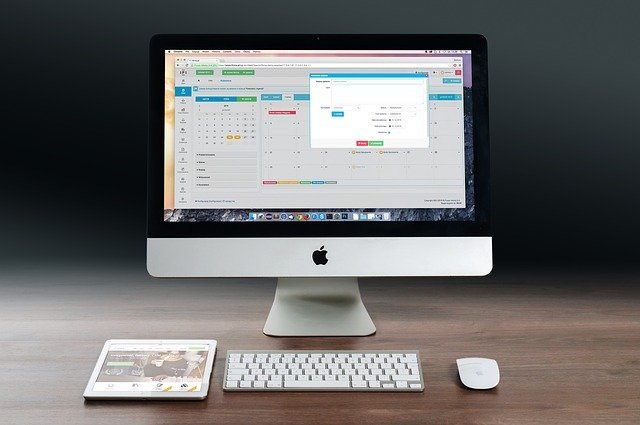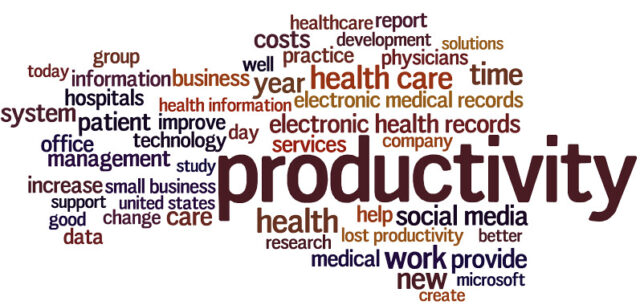Being productive isn’t just about getting the most things done in the shortest time. It’s also about being able to enjoy life and have some downtime. Without balance, you’ll crash and burn faster.
Personal productivity refers to how much progress you make on your own. Whether you are a student or an executive, it’s important to work on your productivity skills. Personal productivity is also referred to as self-management and self-determination (or SWOT analysis).
You can think of it as taking control of your life by focusing on what you do well and keeping things in perspective. While there are many different forms of productivity, here are seven ways to help boost it.

1. Get Organized
Being organized is a huge part of self-management and self-determination. You can think of it as keeping track of everything, whether your bills, important documents, and even clippings from the newspaper. And when you don’t have all this paperwork at your fingertips, it can be challenging to do anything.
For example, let’s say you have several tasks you are trying to get done. Without an organizational system, you will likely forget about some of them and never get them completed. You can even forget the importance of doing simple tasks, such as calling your mother or paying your bills.
However, you are much more likely to remember these tasks and make sure they get done with a system in place. You’ll also be better able to prioritize your tasks to don’t overextend yourself and do too much at once.
2. Set Goals
A big part of being productive is setting goals. Goals can be short-term or long-term, such as saving for a car, getting ahead at work, or saving up for a trip to Europe. Creating goals or lists of your productivity objectives helps you focus on what you want to accomplish. You’ll likely find yourself working towards these goals and finding that they are easier to accomplish than expected.
For example, if you want to be more productive at work, you can set a goal to finish 20 extra pages over the weekend. If you want to clean out the garage, you can set a goal of getting rid of what you don’t need.
Setting goals is also helpful because it provides motivation. When you know that accomplishing these goals will help make your life easier or improve your life in other ways, it’s much easier to get started and complete them.
If you want to be productive and have some downtime, it’s important to keep a daily routine. This can include waking up at a certain time, going to work, and doing your daily tasks. It can also include taking breaks throughout the day, getting exercise, and having dinner with your family on the weekends.
3. Hire a Personal Life Coach
Sometimes, you need a little help getting started. That’s where personal life coaches can come in handy. They help by providing motivation and a sense of accountability. You also have someone to talk to about your goals, which can be very helpful in achieving them.
Personal life coaches can work with you in person or over the Internet, depending on your needs and preferences. They will ask you questions to determine how you want to improve your life and then develop a plan for you to follow.
Hiring a life coach is having someone to call when you need help or advice. You’ll also have someone to share your goals with and work towards achieving them together. While life coaches cost money upfront, it’s usually worth the investment if you find that they help you reach your goals.
Types of Life Coach Niches
Here are some of the life coaching niches that you should consider.
Home Business: If you work from home and are having a hard time getting started in the morning, or if you don’t have a system in place to help you get your work done, hiring a life coach may help. Personal life coaches can help with organization and motivation to feel more accomplished throughout the day.
Fitness: If you want to get more exercise but find it difficult, a personal trainer is worth looking into. Personal trainers may have some tips on how to improve your diet, exercise, and nutrition so that you can give yourself the best chance of being more productive.
Health Coaching: If you’re interested in improving your exercise habits or if you struggle with motivation, a personal health coach may be able to help. You can also ask them how to balance your work and personal life to get the most from both.
Relationship Coaching: If your personal life is suffering from work, it’s time to get help. When you find that you’re picking work over your family or friends, this may be a sign that you need to hire a relationship coach. A relationship coach works with you to determine what’s causing the problem and gives you recommendations for how to fix it.
Financial Coaching: Whether you’re trying to get out of debt or make more money, a financial coach can provide valuable advice. If you have difficulty getting ahead financially, consider hiring a financial coach.
4. Track Your Progress
Being productive is about setting priorities, such as taking care of the bills first and then pursuing a more difficult goal later on in the day. However, what if you don’t know how much time you’ve spent on various tasks? This means that you’re never really sure how well you’re doing.
You can use different systems to track your progress, such as a spreadsheet or a notebook. Knowing how much time and effort has gone into certain tasks helps you keep track of your progress.
Using a spreadsheet also provides another benefit – accountability. If you know that you’ll have to fill out a spreadsheet of how well you are doing with your tasks, you’ll get more done. You’ll also be able to see trends and understand why certain things worked for or against you.
As a personal productivity tool, folders or notebooks can be extremely useful. For example, having a folder for each task or priority will help keep the clutter off your desk. You’ll also be able to find information quickly without searching through piles of paper.
5. Take Breaks
Staying productive can be difficult at times, especially if you’re not finding yourself taking breaks throughout the day. After all, it’s hard to be productive when you’re tired, distracted, and a little hungry. If you do find that you’re getting tired and having trouble concentrating, consider taking a short break.
It would be best if you didn’t try to work too hard at first. You may find that your productivity goes down the next day if you push yourself too much when you’re tired. Instead of working on your most difficult task of trying to cram in a lot of work, take a short break.
Even if you get up from your desk and go for a walk, this can give you time to relax and get refocused. Just make sure that you’re back at your desk before too much time has gone by. You don’t have to take breaks as often as you do if you feel like it’s disrupting your progress, but it’s worth taking a break every once in a while to give yourself some added energy.
6. Avoid Procrastination
Procrastination can be the number one reason you’re not getting as much done as you should. If you don’t have time to get something done, if it’s hard, or you are just not in the mood to do it, then procrastination can step in and make things worse.
When this happens, stress builds up throughout the day until you’re sick of everything and ready to throw in the towel for the day. If you want to be productive and be determined to make it happen, you need to find a way to overcome your procrastination.
As soon as you find yourself putting off a task, think about why. If it’s because the task is difficult, figure out a way to break it down into smaller parts so that you can complete it without procrastinating. If the task is overwhelming for some reason, this may mean that you need help from someone else.
7. Centralize Your Communication Using Tools
Productive people can be very creative and have many ideas of what they could be doing with their time. They work when convenient for them and use tools to keep themselves organized. For example, you could use tools like Evernote to keep track of all you want to do.
Evernote is a free program that allows you to store your notes, files, and photos in the cloud. You can work on these tasks anywhere and return to them later. You can also easily share information with your coworkers to work quickly and keep track of what’s happening.
Conclusion
Being productive daily is hard work. However, if you know what you need to do and take the time to do it, your productivity will skyrocket. Each person has their way of achieving the same goal, so there is no one right way. Instead, each person finds their path and makes things happen.
Apart from this if you are interested to know more about Increase Productivity then visit our strategy category.








